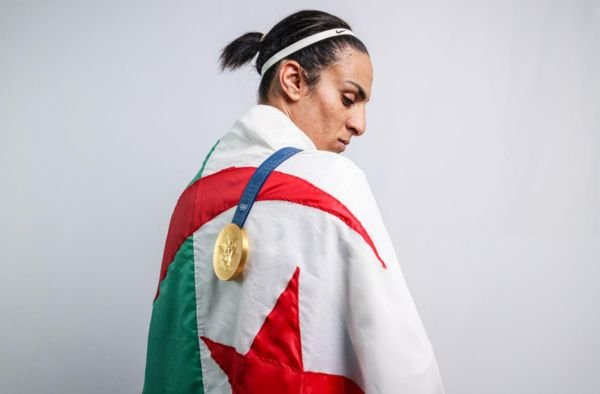Imane Khelif, the Algerian boxer who clinched the gold medal in the women’s 66kg boxing category at the 2024 Paris Olympics, has found herself at the center of a heated controversy. The International Boxing Association (IBA) President, Umar Kremlev, has publicly called for Khelif to return her Olympic medal, citing “suspicious moments” and failed gender eligibility tests prior to the Games. This unfolding saga has reignited debates about fairness, gender verification, and governance in international boxing.

The Controversy Unfolds: What Happened?
Khelif’s Olympic Triumph and Immediate Scrutiny
At the 2024 Paris Olympics, Imane Khelif delivered a stellar performance, defeating reigning world champion Yang Liu of China by unanimous decision to secure Algeria’s first-ever gold in women’s boxing. Despite her victory, questions about her eligibility began swirling, rooted in earlier events at the 2023 International Boxing Association World Championships.
IBA’s Gender Test Findings
The IBA conducted gender eligibility tests during the 2022 World Championships and again in 2023, which reportedly revealed that Khelif possesses XY chromosomes, a finding that does not meet the IBA’s requirements for female boxing competitors. These results led to her disqualification from IBA events, though she was cleared to compete in the Olympics by the International Olympic Committee (IOC), which bases eligibility on the sex listed on an athlete’s passport.
IBA President’s Accusations and Demands
Umar Kremlev has been vocal, accusing the IOC of compromising fairness by allowing Khelif to compete and calling on her to return the Olympic gold medal. He criticized the IOC’s leadership, particularly former President Thomas Bach, accusing them of putting politics over sport and failing to uphold gender equality in boxing.
The IOC’s Position: Standing by Khelif
The International Olympic Committee has rejected the legitimacy of the IBA’s gender tests, describing them as ad hoc and not meeting proper standards. The IOC suspended recognition of the IBA in 2023 due to concerns over governance and integrity, taking over the boxing events at the Paris Games themselves. IOC spokesman Mark Adams emphasized that the testing process was not legitimate and does not warrant any response.
Khelif’s Response and Public Support
Imane Khelif has consistently denied the allegations, calling the accusations “false and offensive” and asserting her right to compete as a woman. She has vowed to fight both in the ring and through legal channels to defend her reputation and Olympic title. Despite facing disqualification and online harassment, Khelif remains steadfast, highlighting the personal and professional challenges she has endured.
What This Means for Boxing and Gender Eligibility
The controversy has exposed larger issues within boxing governance and the complexities of gender verification in sports. The IBA’s suspension and the creation of a new governing body, World Boxing, which aims to establish clearer policies on gender eligibility, reflect ongoing efforts to address these challenges.
Key Points in the Controversy:
- Two rounds of gender testing by IBA found XY chromosomes in Khelif.
- IOC bases eligibility on passport sex, cleared Khelif for Olympics.
- IBA President demands medal return, accusing IOC of political bias.
- IOC dismisses IBA’s tests as illegitimate.
- Khelif denies allegations and pledges to fight on.
FAQs About Imane Khelif and the Gender Controversy
Q1: Why is Imane Khelif being asked to return her Olympic medal?
IBA President Umar Kremlev claims Khelif failed gender eligibility tests showing XY chromosomes, which disqualifies her from women’s boxing under IBA rules.
Q2: Has the International Olympic Committee accepted these gender test results?
No. The IOC has rejected the IBA’s testing methods and results as illegitimate and continues to recognize Khelif’s eligibility based on her passport sex.
Q3: What was the outcome of Khelif’s Olympic boxing match?
Khelif won the gold medal in the women’s 66kg division at the 2024 Paris Olympics by unanimous decision, defeating reigning world champion Yang Liu.
Q4: How has Khelif responded to the controversy?
She has called the accusations false and offensive, vowing to defend her title and reputation both legally and publicly.
Q5: What is being done to address gender eligibility in boxing going forward?
A new governing body, World Boxing, has been formed and is working on creating clear policies to handle gender eligibility disputes in the sport.
Conclusion
The call for Imane Khelif to return her Olympic gold medal has stirred a complex debate about gender, fairness, and governance in boxing. While the IBA insists on strict gender verification policies, the IOC maintains a more inclusive stance based on official documentation. As Khelif continues to defend her title and integrity, the boxing world faces the urgent task of establishing transparent, fair, and scientifically sound rules that protect athletes and the spirit of competition alike.
This controversy is far from over, and its resolution will likely shape the future of gender policies in Olympic boxing and beyond. For now, Imane Khelif stands firm — a champion both inside and outside the ring.


